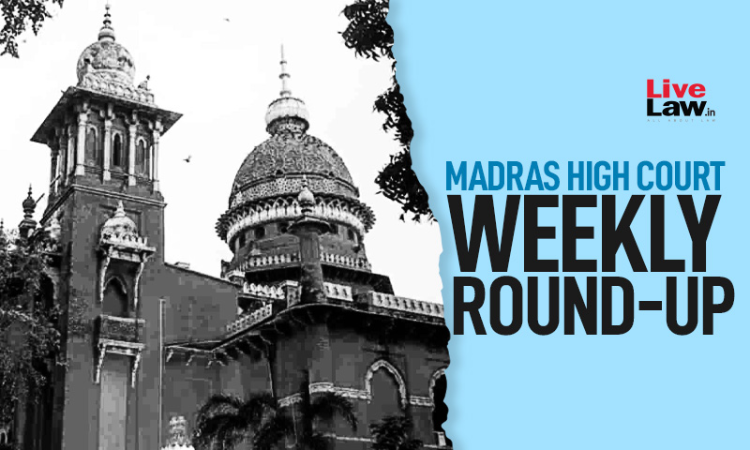Next Story
8 May 2022 9:58 PM IST
A weekly round-up of important cases from Madras High Court and its subordinate courts. Citations: 2022 LiveLaw (Mad) 192 To 2022 LiveLaw (Mad) 205 NOMINAL INDEX Agavai (Name Changed) v. The State represented by Inspector of Police, 2022 LiveLaw (Mad) 192 Case Title: M.Ani v. The Government of Tamilnadu and others, 2022 LiveLaw (Mad) 193 Hema Jwaalini and others v....

